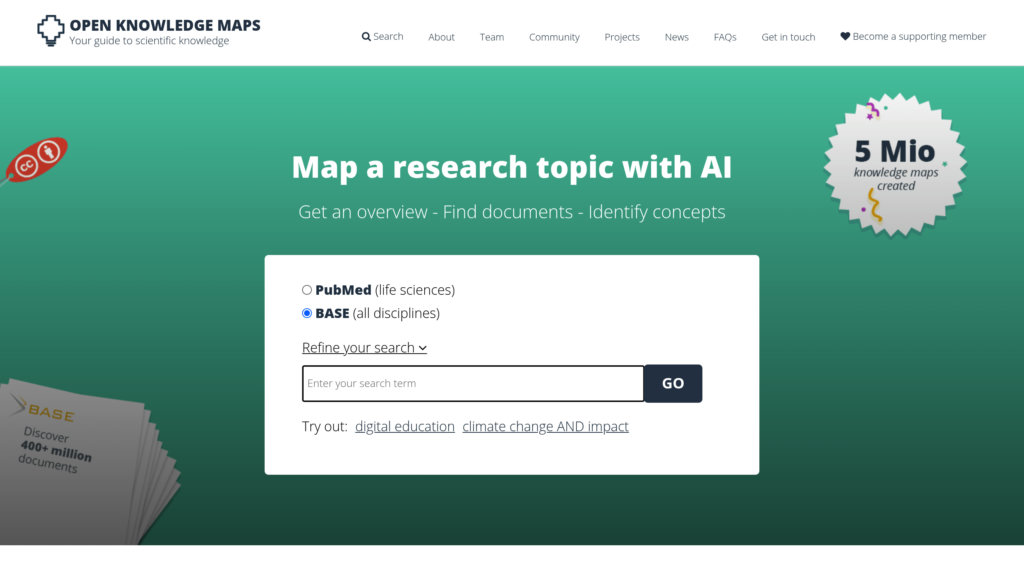Open Knowledge Maps
Visual search engine with interactive knowledge maps for scientific literature
Introduction
What is Open Knowledge Maps?
Open Knowledge Maps is a philanthropic, open-source initiative that reimagines scientific discovery through AI-powered visualization. The platform employs artificial intelligence to organize and map relevant research materials according to user searches, delivering immediate thematic landscapes that spotlight major research domains and associated publications. By connecting with extensive academic repositories including PubMed and BASE, it enables cross-disciplinary investigation while prioritizing openly accessible materials. The project champions an open, cooperative scientific ecosystem where users can seamlessly navigate, distribute, and expand upon research findings.
Key Features:
• Leverages natural language processing and machine learning to automatically create visual diagrams that group the 100 most pertinent research items by thematic connections.
• Facilitates research exploration spanning all scientific fields and numerous languages, boosting accessibility to diverse international academic work.
• Spotlights openly available publications within visual maps, enabling immediate access to free full-text content where available.
• Interfaces with substantial data providers such as PubMed and BASE, encompassing more than 300 million research outputs including articles, data collections, and multimedia content.
• Built through participatory engagement with users under open licensing, promoting transparency, community involvement, and ongoing enhancement.
• Provides options to incorporate knowledge maps into institutional databases and discovery platforms, improving accessibility to specialized collections.
Use Cases:
• Enables academics and learners to rapidly familiarize themselves with new subjects while identifying central research themes and vocabulary.
• Streamlines the process of locating relevant studies by grouping similar publications and distinguishing significant content from unrelated material.
• Advances the discovery of openly available research, supporting global equitable access to scientific knowledge.
• Allows libraries and research institutions to incorporate visual search capabilities into their systems for improved research navigation.
• Assists educators, science communicators, and professionals in illustrating research landscapes to explain complex subjects effectively.
